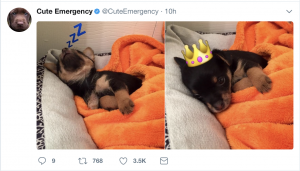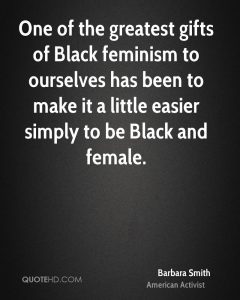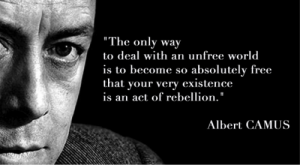Less than a week after leaving my city life in the concrete jungle, I find myself in the piney woods of east Texas — no cell service or wifi, 100 degree Texas heat, and the sweet soundtrack of nature. Within hours or arriving, I’ve already removed 1 scorpion and 3 spiders from the midst of high pitches screams in a cramped cabin, courtesy of my 11 preteen campers. They applaud my bravery in handling the bugs, something that they say they themselves could have “never” done. I tell them that this is not true. They could have done the same thing.
During introductions the first night, I have 3 girls specify that they are “girly-girls” — meaning their favorite color is pink, they like to do hair and make up, make bracelets, and they don’t touch bugs. I cringe a little.
I had never thought about this during my time in Moxie, but I really hate that the idea of a girly-girl and a tomboy even exist. The traits for a girly-girl represent everything that patriarchy wishes to enforce and police in women, focusing on appearance and perception and trapping women into a position of submission to the man. Girly-girls grow up to be damsels in distress, reliant on men for their survival. Girly-girls are told to value how they look and how other people perceive them rather than self-love and acceptance and rather than considering any other life-skills. And girls are either forced into joining the ranks of girly-girls or told to renouncing their womanhood all together, as they deviate to the label “tomboy”. Because, of course, a girl could never be good at sports, or choose to wear basketball shorts because they are comfortable, or like science because it is cool, or wear her hair in a ponytail because it just makes sense. No no, those types of girls are not girls at all. Because boy is good and girl is less, boy is power and girl is pretty, boy can be president and girl can be president’s wife.
We are teaching our girls exactly how they are valued in society. Limiting their potential by allowing their predestination as secondary. Letting them know early on which skill they should work on perfecting to reach success. Even to just survive.
I reject this. I reject the myth of the girly-girl and refuse to let patriarchy continue oppressing our girls.
I told my girls that they are not girly-girls, they’re just girls. Because girl is great. Girl is strong and passionate and driven. Because anything boys can do, girls can do better.







 Throughout the month of June, New York City buildings and businesses have been adorned in rainbow flags and messages of support. I woke up Sunday morning to see the restaurant on the corner hanging additional rainbow flags and stood in line with people wearing t-shirts supporting pride in the bagel shop. I knew it was going to be a good day!
Throughout the month of June, New York City buildings and businesses have been adorned in rainbow flags and messages of support. I woke up Sunday morning to see the restaurant on the corner hanging additional rainbow flags and stood in line with people wearing t-shirts supporting pride in the bagel shop. I knew it was going to be a good day!









